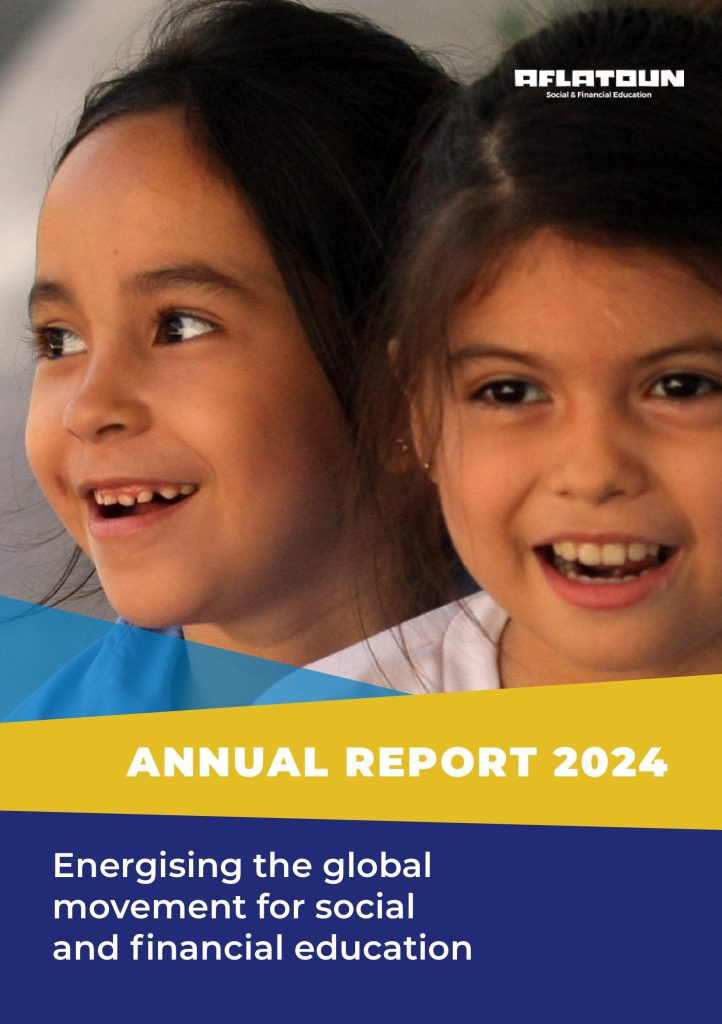The Open Society Foundation (OSF) was established in November 1992 and since its creation, the foundation’s three main pillars uphold liberal democracy, personal freedom and individual dignity. Alongside these three constitutive values, members of the foundation create opportunities to improve the quality of life of minority groups and thereby strive to nurture an ‘Open Society’ within the community. This takes place by enabling access to quality education, ensuring high level of understanding of human rights and allowing disadvantaged, marginalised and vulnerable groups to have equal opportunities to live autonomous lives.
To be part of this change towards youth participation in their communal enjoyment of rights, OSF is part of three organisations whom form part of a consortium called, the Active Citizens Fund Slovakia (ACF). This fund supports the Slovak civil society organisations in engaging citizens in decision-making and public policymaking, in efforts to create better conditions for good governance, in protecting human rights, in providing social education and in improving the position of vulnerable groups in Slovakian society. Additionally, the consortium shares a special focus on the value of youth involvement in public affairs to empower them as future change makers within their communities. OSF is also part of another consortium of partners called, the Stronger Roots, which focuses on supporting non-governmental organisations and other umbrella organisations. This collaboration allows local initiatives to gain access to training events, individual consultations, access to help from experienced mentors in the fields of organisational management, volunteer development, communication or fundraising. Moreover, in 2017, OSF worked alongside Škola dokorán – Wide Open School on developing the Romani Early Years Network Slovakia; an initiative comprised by a network of professionals working to provide services for early years Roma children from the age of 0 to 10 years of age.
Our partnership
Based on the data presented by OSF, in 2018, Slovakia scored below average among other OECD countries in financial literacy. Surveys have shown that the level of knowledge of the Slovak population is one of the lowest in the European Union and 34.7% of students are unable to solve problems related to finance. The lack of financial literacy of young people represents a huge problem; especially as in a few years, they will become adults and they will have to face their first financial decisions. As a result, this knowledge gap will perpetuate major setbacks, limiting their live independent and fructuous lives. The Ministry of Education of the Slovak Republic mirrors this concern and recommends that financial literacy should be taught from kindergarten onwards.
“The recommendation for financial literacy education is in line with the views of most psychologists, who recommend paying attention to the topic of money in the upbringing and education of children from an early age, when children begin to understand the concept of money. According to the National Bank of Slovakia, the Slovak Republic belongs to a group of countries where students from weaker socio-economic backgrounds perform significantly worse in financial literacy. This is the main reason why we implement Aflatoun programme activities mainly in marginalised Roma communities.”
In 2015, we became partners. Under the backdrop of marginalised children from Roma communities, with whom OSF work extensively, the country lacked a comprehensive methodology that would address the development of children’s social and financial literacy from pre-school age, while at the same time promoting cooperation and parenting programmes for the caretakers. In light of the latter, OSF started implementing the Aflatot programme to bring to the fore the importance of capacity building, learning strategies and the aggregated value in enabling children’s perceptions and voices in classroom settings. These skills have been extremely important for disadvantaged children to acknowledge the fruits of learning and the benefits of acquiring financial education to empower them, bring about social change, and reduce the societal, discriminatory gap in the educational system.

As we step forward, the partnership has resulted in an increased interest from teachers and professionals in the field of pedagogy in being trained to understand and put in practice the Aflatoun methodology.
“We are delighted that the Aflatoun programme is gaining recognition in Slovakia thanks to the expanding network of professionals – this is the 3rd school year that participation in the programme has been recommended by the Ministry of Education”.
“We are also very pleased with the enthusiasm of the children and parents who participate in the activities. We believe that several years of intensive and purposeful work with the participating communities will bring about changes in their social and financial literacy, which are very important for the health of the individual communities, but also for the society as a whole.”
Children’s Solidarity among Vulnerable Communities
The Aflatoun programme encourages children to establish social and financial enterprises with a strong emphasis on saving money for personal enjoyment, such as buying ice cream or going on trips. Due to existing layers of Roma vulnerability in Slovakia, the programme has predominantly served children from marginalised Roma communities, whose families often face financial difficulties. As a result, their Aflatoun savings are typically small in size. However, the children experience great happiness when they can afford to treat themselves to something extra special.
In one of the occasions, a facilitator expresses being taken aback by the developed solidarity between the Roma children and the Ukrainian refugees.
“We were surprised when the children in one of the cooperating kindergartens, which is attended only by children from the local marginalised Roma community, decided to donate the money they had saved to refugee children from Ukraine. They showed great empathy and understanding of the fear and suffering experienced by children fleeing the war”.












